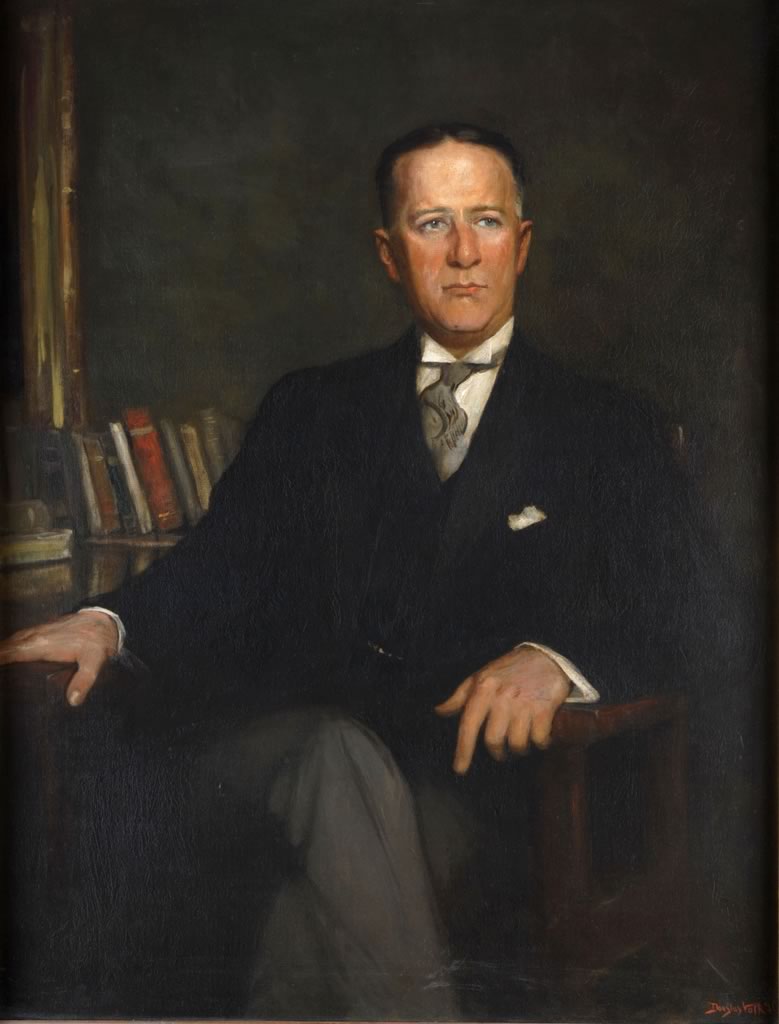 |
| Alfred E. Smith |
Al Smith was born in Manhattan into a working-class family of partly Irish ancestry. He had no formal education past grade school because he had to go to work at age 12 when his father died.
Smith took various jobs, including a well-paying job at the Fulton Fish Market, which brought him to the attention of Tammany Hall, New York's political machine, and at the age of 22 he became a clerk in the office of the commissioner of jurors. He was elected to the New York state assembly as a Democrat in 1904 and elected speaker in 1913.
Smith gained even greater prominence when he was appointed vice chairman of the New York State Factory Investigating Commission, formed to investigate the fatal 1911 Triangle Shirtwaist Fire.
  |
This familiarized him with industrial conditions in New York State and encouraged him to support progressive policies. By 1915 Elihu Root, a Republican senator who had won the Nobel Peace Prize in 1912, could call Smith "the best informed man on the business of the State of New York."
In 1915 Smith was elected to the office of sheriff of New York. Three years later he was elected governor. He lost the position in the Republican landslide of 1920, regained it in 1922, and kept it through two more election cycles.
As governor he assisted in the creation of the New York Port Authority, run jointly by New York and New Jersey, and he sponsored legislation on rent control; tenant protection; workers' compensation; aid o mothers, infants, and dependent children; and regulating women's work hours. He also put Robert Moses in charge of the state park system.
During his tenure as governor he feuded with newspaper publisher William Randolph Hearst and the mayor of New York. Smith's reelection victory in 1926 against a very strong Republican candidate made him the foremost Democrat holding public office in the country.
Smith had been nominated as a candidate for the presidency at the Democratic National Convention in 1924, but the combination of a late start in the hunt for delegates, his Roman Catholic faith, and a fight over a platform plank denouncing the Ku Klux Klan by name led to a deadlock with a southern candidate, William McAdoo, and neither received the nomination.
In 1928 Franklin Delano Roosevelt presented Smith to the convention as "The Happy Warrior," and he was nominated on the first ballot, making him the first Roman Catholic ever nominated for president by a major party.
His New York accent, his religion, his association with a big-city political machine, and his stand against Prohibition led to a sound defeat by Herbert Hoover in a campaign characterized by appeals to religious bigotry.
After his defeat Smith became involved in the project of erecting the Empire State Building, and he became president of the firm that owned and operated it, a position he held until his death. Although he supported the nomination of Franklin D. Roosevelt in 1932, he became a critic of the New Deal and government regulation of industry.
He later joined in the formation of the American Liberty League, a nonpartisan organization devoted to protection of the rights of property and opposition to the "political experiments" being conducted by the Roosevelt administration. Smith supported Republican presidential candidates in 1936 and 1940.